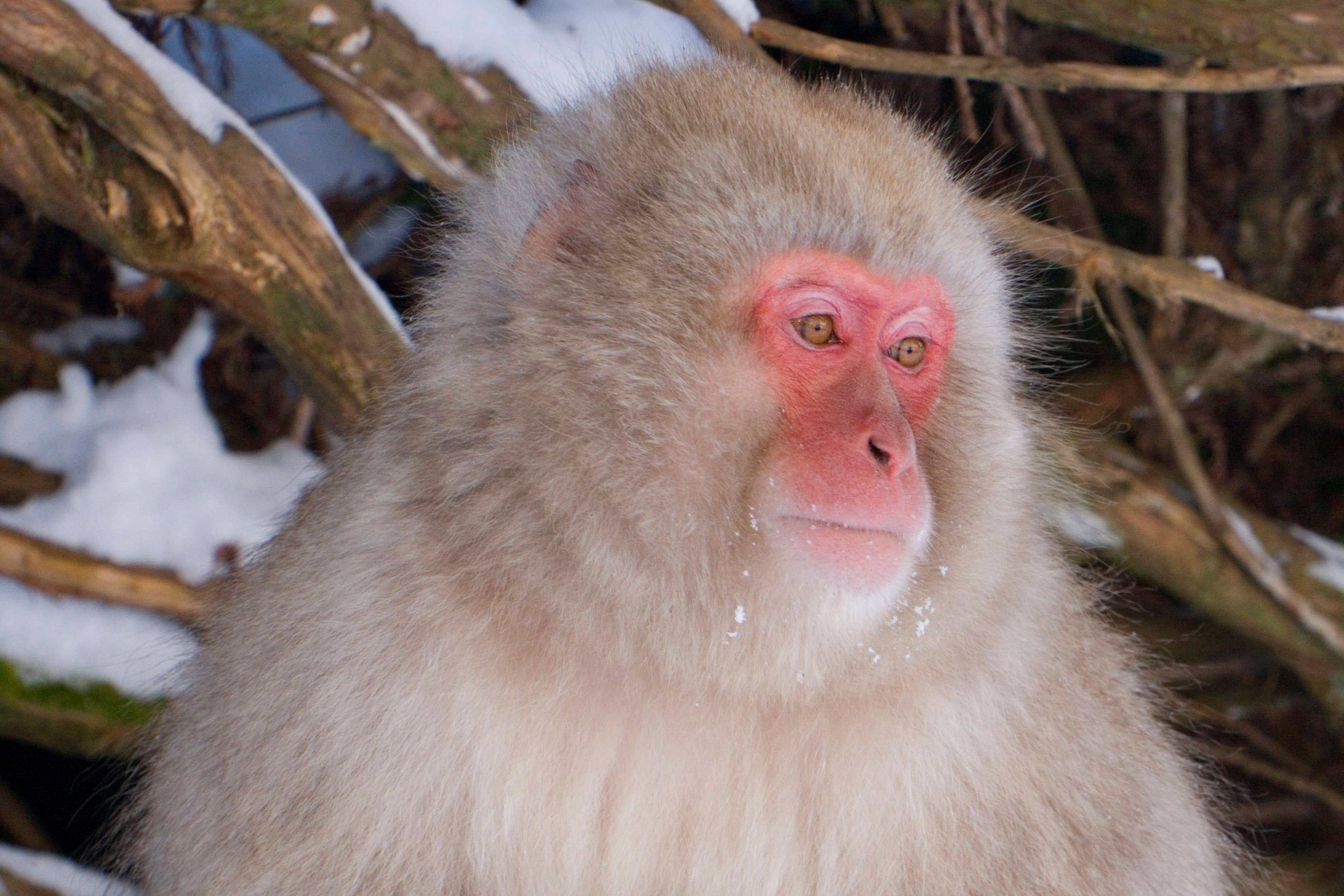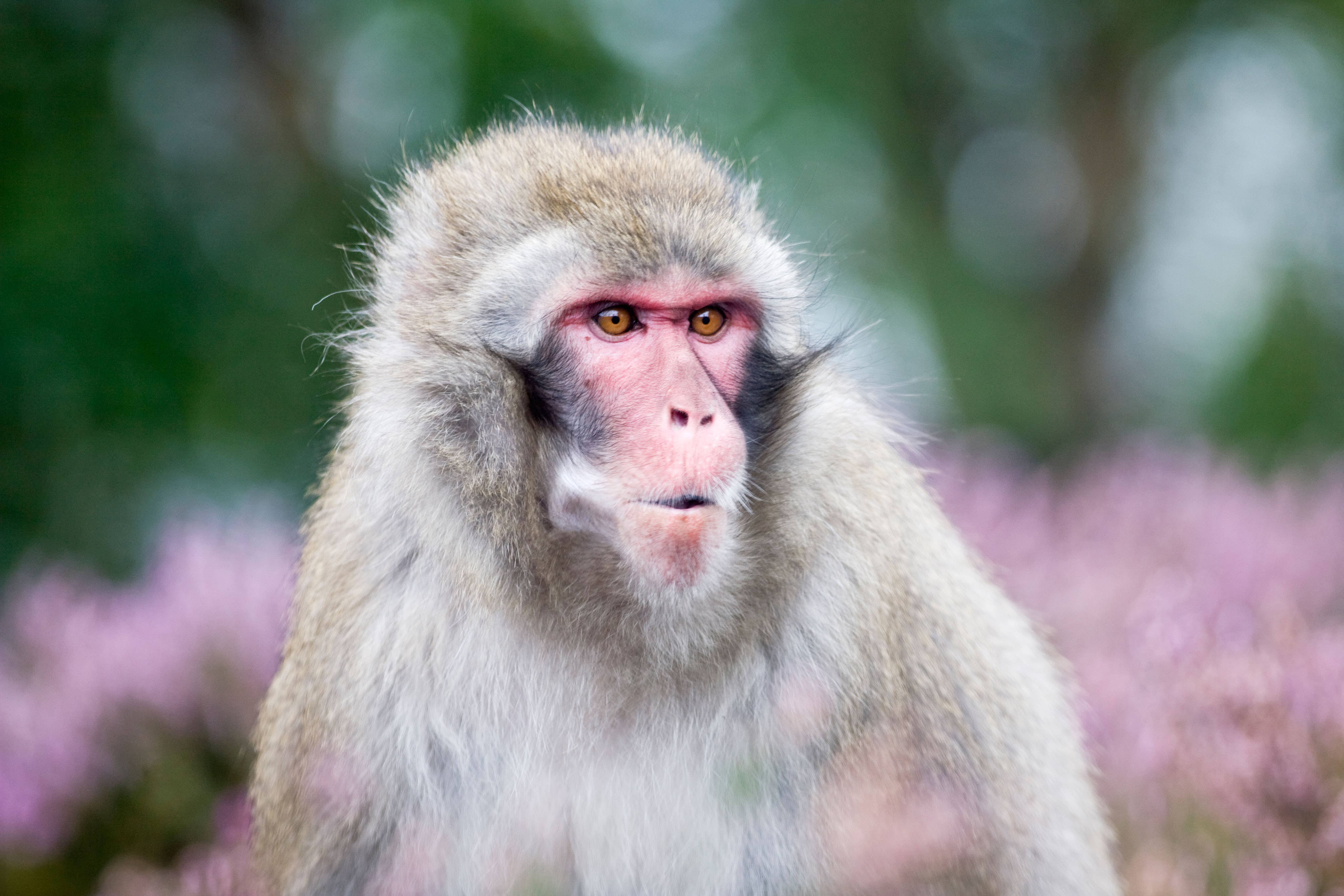Scottish monkey escape – live: Woman’s leftover Yorkshire pudding lures on-the-run Kinguissie Kong to capture
The leftover roast dinner favourite attracted the Japanese macaque which had escaped from its enclosure at Highland Wildlife Park near Kingussie, Inverness
Your support helps us to tell the story
This election is still a dead heat, according to most polls. In a fight with such wafer-thin margins, we need reporters on the ground talking to the people Trump and Harris are courting. Your support allows us to keep sending journalists to the story.
The Independent is trusted by 27 million Americans from across the entire political spectrum every month. Unlike many other quality news outlets, we choose not to lock you out of our reporting and analysis with paywalls. But quality journalism must still be paid for.
Help us keep bring these critical stories to light. Your support makes all the difference.
A woman inadvertently helped capture a missing Japanese macaque, nicknamed Kingussie Kong, by leaving leftover Yorkshire pudding in her garden.
Shocked Stephanie Banyan came downstairs in her home on Thursday morning to find the monkey staring through the window at her.
She later revealed that it was the roast dinner favourite which she left outside that had tempted to primate which escaped from Highland Wildlife Park near Inverness on Sunday.
“We get the pheasants in the garden, we’ve had all sorts of wildlife in the garden but never a macaque,” she told Channel 5 news.
The monkey led the authorities on a merry dance for nearly a week – but is now finally back at the wildlife park.
Staff at the park, run by the Royal Zoological Society of Scotland (RZSS), had urged the public not to approach the primate and said zookeepers were searching for the animal.
Monkey escapes Scottish zoo
A monkey is on the loose after escaping from a wildlife park in the Scottish Highlands.
The Japanese macaque found a way out of its enclosure at Highland Wildlife Park near Kingussie on Sunday morning.
The slippery simian, nicknamed Kingussie Kong, has been spotted nicking nuts from neighbour’s bird feeders before giving zookeepers the runabout around the neighbourhood.

Monkey hunt as macaque goes on the run after escaping from wildlife park
Staff at Highland Wildlife Park urged the public not to approach the monkey
Zookeepers searching village for monkey
A team of zookeepers are patrolling Kingussie, Inverness, to capture and return the escaped monkey the Highland Wildlife Park.
Darren McGarry, head of living collections at Royal Zoological Society of Scotland, said: “A team of our charity’s expert keepers are patrolling the village today in order to locate and return the macaque that escaped yesterday.
“Although we don’t expect the monkey to be a threat to the public or pet animals, he should not be approached. We are doing everything we can to locate the macaque and are in talks with a drone company to help in this process.
“Locals are being encouraged to bring in any food that is kept outside, such as food waste bins and bird feeders to encourage the monkey to return to the park once he is hungry.”
What is a Japanese macaque?
Japanese macaques, also called Japanese snow macaques or simply snow monkeys, are found on three of the four main Japanese islands—Honshu, Shikoku, and Kyushu—and live further north than any other macaque species, according to the New England primate conservancy.
They have human-like naked faces and expressive eyes. They have cheek pouches for food storage. In adulthood, their faces and bottoms become red.
All macaques have opposable thumbs that they use to manipulate objects. They use all four limbs to get around (quadrupedal movement), but also walk just on their hind legs (bipedal) when holding something in both hands.

Same breed of monkey escaped in 2008
The same breed of monkey escaped from the same zoo 16 years ago but was recaptured within one hour, according to reports.
The Japanese animal fled Highland Wildlife Park in 2008. Three of the animals died there earlier that year. One monkey was killed by a rival in February. A second had to be put down and a third drowned.
Are Japanese Macaque monkeys dangerous?
Japanese macaques, also known as snow monkeys, are not usually dangerous to humans.
However, in 2022, a gang of snow monkeys terrorised residents of a Japanese city for weeks. The macaques injured almost 50 people in Yamaguchi.
Snow monkeys are common across Japan and in some areas are considered a pest, eating crops and sometimes entering homes.
Watch: Monkey hunt as macaque goes on run after escaping from wildlife park
Monkey could have been running from fight, zookeeper says
The monkey which escaped from a Scottish zoo might have been running from a fight during breeding season, a zookeeper said.
Keith Gilchrist, of the Royal Zoological Society of Scotland, said high tensions among primates could have caused the animal to flee.
“It’s a very dynamic group of animals with quite a strong hierarchy. This time of year is breeding season so tensions run a little bit high and some times fights break out over breeding rights,” Mr Gilchrist told the BBC.
“When that happens the animals’ adrenaline can some times over-ride everything and rather than get into a fight it seems this one has just gone for it and got past the enclosure perimeter fence.”
What is a Japanese macaque?
Japanese macaques, also called Japanese snow macaques or simply snow monkeys, are found on three of the four main Japanese islands—Honshu, Shikoku, and Kyushu—and live further north than any other macaque species, according to the New England primate conservancy.
They have human-like naked faces and expressive eyes. They have cheek pouches for food storage. In adulthood, their faces and bottoms become red.
All macaques have opposable thumbs that they use to manipulate objects. They use all four limbs to get around (quadrupedal movement), but also walk just on their hind legs (bipedal) when holding something in both hands.

Are Japanese Macaque monkeys dangerous?
Japanese macaques, also known as snow monkeys, are not usually dangerous to humans.
However, in 2022, a gang of snow monkeys terrorised residents of a Japanese city for weeks. The macaques injured almost 50 people in Yamaguchi.
Snow monkeys are common across Japan and in some areas are considered a pest, eating crops and sometimes entering homes.
Subscribe to Independent Premium to bookmark this article
Want to bookmark your favourite articles and stories to read or reference later? Start your Independent Premium subscription today.





Join our commenting forum
Join thought-provoking conversations, follow other Independent readers and see their replies
Comments